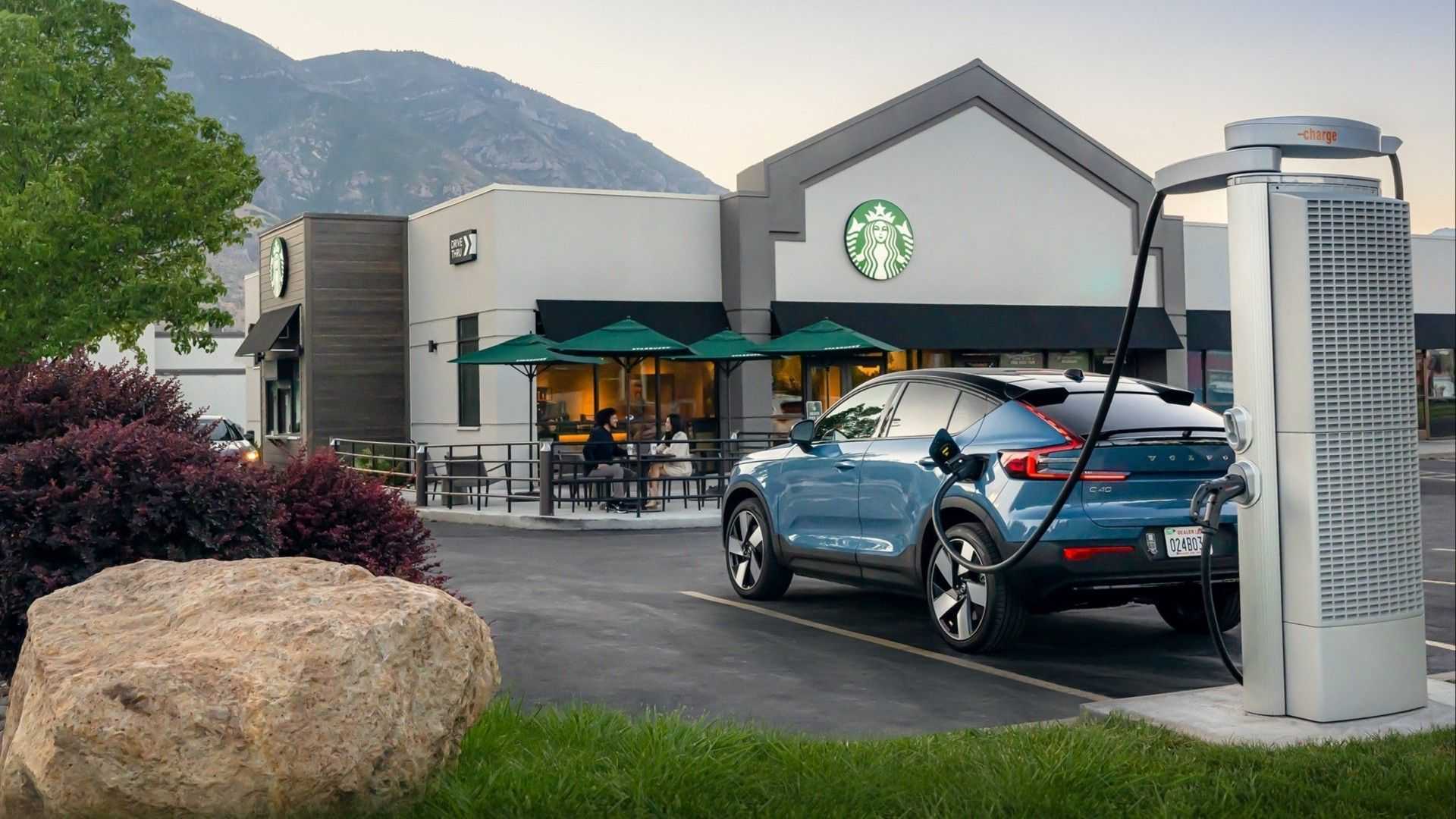

Only 1% Of 270,000 Surveyed Retail Locations Have EV Charging: Consumer Reports

It’s no secret that charging infrastructure is one of the biggest roadblocks to EV adoption. Even if EV intenders are interested in the cars, the lack of charging stations can make life tough. Consumer Reports’ latest study shows that one big space could be a great way to quickly establish charging infrastructure—retail stores. Unfortunately, big box stores, grocery stores, and fast food chains are severely lagging in offering drivers EV charging stations.
Get Fully Charged
Retail spaces could be ideal spaces for EV charging infrastructure
According to Consumer Reports, about a third of Americans are interested in EVs, but the lack of charging infrastructure is a dealbreaker. Retail stores have large parking lots and are centrally located, yet barely 1% of all retail outlets in the U.S. have any EV charging whatsoever. Accessible and plentiful EV charging spaces are key to getting buyers to accept EVs.
If you think about it, American retail is kind of the ideal space to establish charging infrastructure. At any given Target, Wal-Mart, or even McDonald’s, buildings will be served by big parking lots with unused spaces. They’re often located right on main thoroughfares, off interstates, and around other population centers so any charging station would be close in distance to the people who would use the most. According to Consumer Reports, the installation of DC fast-charging infrastructure at existing retail spaces does add a tangible bump in both foot traffic and revenue to the retail spaces they’re installed.
Yet, when CR examined the numbers, it learned that most retail spaces don’t offer charging at all. The brand surveyed 75 different retail and fast food outlets, and only 1% of the 270,000 retail locations offered any sort of charging. Big box stores like Target and Walmart were better at offering charging, but as a whole, the numbers were very low. On average, EV charging is available at 1 out of every 14 big box stores, 1 out of every 15 grocery stores, and a dismal 1 out of every 40 department stores. The only outlier is IKEA, which offers EV charging at nearly 100% of its U.S. stores.
CR’s more than 30-page white paper, as a whole, examines which retail stores are making moves to support EV charging. It also examines what role they could play in the U.S.’s charging infrastructure, or how these spaces can inform EV buyers and owners. For example, stores like Dollar Tree or Dollar General could easily serve as spaces to increase EV charging to underserved communities. Yet in the more than 37,000 dollar and discount stores CR surveyed, only two stores had any EV charging at all.
Of course, these chargers are not cheap. The installation of a DC fast charger can easily reach well over $200,000, according to CR’s research. However, federal incentives and a theoretical increase in retail foot traffic should defray the costs.
The U.S. government estimates that we need at least 1.25 million chargers installed to meet U.S. EV demand, yet we’ve only barely built a tenth of that. It’s clear that if we’re serious about getting folks to buy and drive EVs, we need more EV charging infrastructure, and ASAP.
Add a comment Cancel reply
Comments (0)
Categories
- Car News (8)
- Car Reviews (2)
- Cars News (95)
- Electric Cars (79)
- Electric Two-wheeler (76)
- Electric Vehicle (78)
- Experts Reviews (3)
- Gallery (11)
- New Arrivals (380)
- Uncategorized (6)
- Used Cars (54)
- XUV Cars (4)








